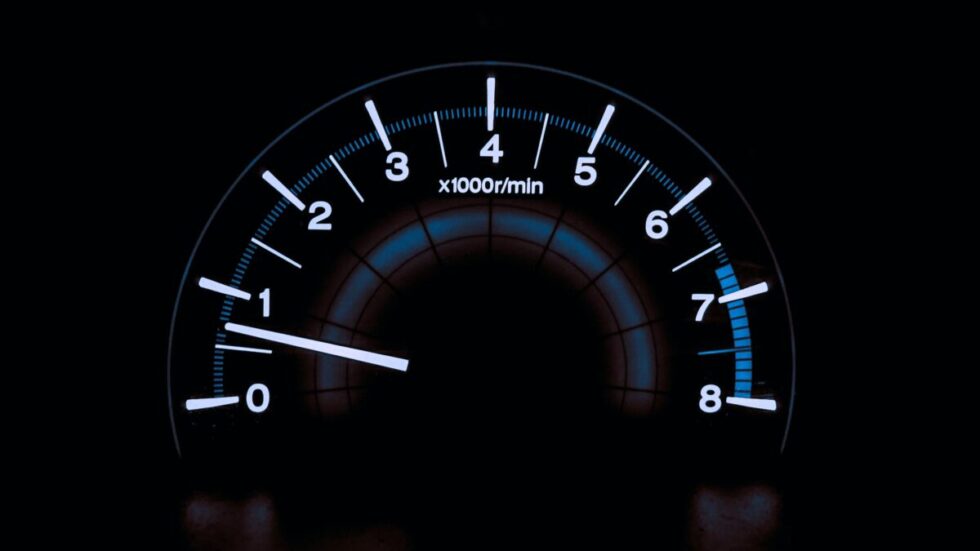Lease a Car with Unlimited Miles: Your Comprehensive Guide to Hassle-Free Driving


If you’re in the market for a new car but are hesitant to buy one outright, leasing might be the perfect solution for you. And if you’re someone who plans on putting a lot of miles on your car, you’ll want to consider leasing with unlimited miles.
In this comprehensive guide, we’ll explain everything you need to know about leasing a car with unlimited miles, as well as high-mileage leases, lease-end options, and more.
High-Mileage Lease Explained
First, let’s define what a high-mileage lease is. Essentially, it’s a lease agreement that allows you to drive more miles per year than a standard lease. Standard leases typically limit drivers to 12,000 to 15,000 miles per year, whereas high-mileage leases can allow for up to 25,000 or even 30,000 miles per year.
Pros of a high-mileage lease include the ability to drive more without worrying about mileage overage fees, as well as potentially lower monthly payments due to the higher residual value of the car at the end of the lease. However, cons may include higher initial down payments and higher overall lease costs.
Car Lease with High Mileage Allowance
Now, let’s talk about high mileage allowance in a lease agreement. This type of lease allows for a predetermined number of miles to be driven over the course of the lease term, typically ranging from 10,000 to 20,000 miles per year.
Advantages of a high mileage allowance lease include a lower overall lease cost, as well as the ability to adjust the lease terms to better suit your driving needs. However, potential downsides may include the risk of mileage overage fees and limited options for lease-end buyouts.
How to Lease a Car with Unlimited Miles
Leasing a car with unlimited miles may be the best option for those who plan on driving extensively. Qualifications and requirements for an unlimited mileage lease can vary depending on the leasing company, but typically involve a good credit score and stable income.
Tips for negotiating an unlimited mileage lease include doing your research and comparing offers from different leasing companies. Be aware of common fees and charges associated with unlimited mileage leases, such as disposition fees and excess wear and tear charges.
Lease Termination Fees and Other Contract Terms
Lease termination fees are an important consideration when leasing a car. These fees may be charged if you end your lease early or exceed the mileage limit specified in your lease agreement.
It’s important to understand your lease-end options, including returning the car, extending the lease, or buying the car outright. Be aware of any clauses or restrictions in your lease agreement, such as early termination penalties or wear and tear guidelines.
Lease-End Options and Other Considerations
When deciding on a lease-end option, there are a number of factors to consider. These include your driving habits, your financial situation, and your plans for the future.
Preparing for lease-end can involve taking steps to ensure the car is in good condition, such as regular maintenance and cleaning. Additionally, be aware of any fees or charges that may be assessed during the inspection process, such as excess wear and tear fees.
Lease Transfer and Other Alternatives
Leasing a car with unlimited miles or high mileage allowance can be a great option for those who drive frequently and want a hassle-free driving experience. However, sometimes life circumstances change, and you may need to get out of your lease before the end of the term. In this case, you may consider lease transfer or lease assumptions, which allow you to transfer the lease to someone else who takes over the remaining payments and responsibilities.
Another alternative to leasing is buying or renting a car. When you buy a car, you have the freedom to drive as much as you want without worrying about mileage restrictions or lease-end options. However, owning a car comes with additional expenses, such as maintenance, repairs, and depreciation. Renting a car can also be an option, but it may not be cost-effective for long-term use.
When deciding on a lease transfer or alternative, you should consider factors such as the remaining lease term, the condition of the car, the current market value, and your future driving needs. It is also important to review the terms and restrictions in your lease agreement to ensure that you are not violating any rules.
If you’re considering leasing a used car instead of a new one, you may be able to save money on monthly payments and avoid some of the fees associated with new car leases link.
Unlimited Mileage Car Lease vs High-Mileage Lease
There are two types of lease agreements that are suitable for high-mileage drivers: unlimited mileage lease and high-mileage lease. Unlimited mileage lease allows you to drive as much as you want without worrying about mileage restrictions or overage fees. High-mileage lease, on the other hand, sets a higher mileage allowance than the standard lease but may still charge overage fees if you exceed the limit.
Both types of leases have their pros and cons. Unlimited mileage lease provides you with a hassle-free driving experience and the flexibility to drive as much as you want. However, it may come with a higher monthly payment or upfront costs. High-mileage lease, on the other hand, can be more affordable but may still limit your driving distance and charge overage fees.
When deciding which lease option is best for your driving needs and habits, you should consider factors such as your daily commute, travel plans, and budget. If you drive frequently or plan to take long road trips, unlimited mileage lease may be the better option. If you have a predictable driving pattern and want to save money, high-mileage lease may be the better choice.
Benefits of Leasing a Car with Unlimited Miles

Leasing a car with unlimited miles can provide you with many benefits, especially if you are a long-distance driver. Here are some advantages of leasing a car with unlimited miles:
- Flexibility: You can drive as much as you want without worrying about mileage restrictions or overage fees.
- Lower costs: Leasing a car with unlimited miles can be more cost-effective than buying a car, as you only pay for the depreciation during the lease term.
- No resale worries: When you lease a car, you do not have to worry about the resale value or selling the car at the end of the term.
When comparing leasing with buying a car, leasing a car with unlimited miles can be a better option for those who want to avoid the hassle of owning a car and enjoy a hassle-free driving experience.
Mileage Restrictions on Car Leases
One of the biggest downsides of leasing a car is mileage restrictions. Most lease agreements come with a set mileage allowance, typically between 10,000 to 15,000 miles per year. If you exceed this limit, you will be charged for each additional mile driven, which can add up quickly. The overage fees can range from 10 to 30 cents per mile, depending on the car model and lease agreement.
Compared to a high-mileage lease or an unlimited mileage lease, a standard lease with mileage restrictions may not be the best option for someone who drives a lot. However, if you don’t drive much or have a short commute, a lease with mileage restrictions may be a better fit for your needs.
To avoid overage fees, it’s important to accurately estimate your mileage before signing a lease agreement. You can also negotiate a higher mileage allowance at the time of lease signing, but be aware that this will likely increase your monthly payment.
Another option is to purchase additional miles upfront. This will cost less than paying overage fees later on, but it’s still important to accurately estimate your mileage needs.
Lease Incentives for High-Mileage Drivers
Leasing a car with high mileage allowance or unlimited miles can be expensive, but some automakers offer incentives for high-mileage drivers. These incentives can include waived or reduced mileage overage fees, discounted lease rates, or even cash incentives.
Before signing a lease agreement, be sure to research any available incentives for high-mileage drivers. You can often find this information on the automaker’s website or by contacting a dealership directly.
It’s also important to compare lease incentives for high-mileage drivers with other lease incentives, such as low down payment or zero-percent financing. Depending on your situation, one type of incentive may be more beneficial than another.
To take advantage of lease incentives for high-mileage drivers, be sure to ask about them at the time of lease negotiation. Not all dealerships may offer these incentives, so it’s important to shop around and find the best deal.
If you’re in the market for a car lease, negotiating the terms of the lease is an important step to ensure you get the best deal possible. Luckily, there are several strategies you can use to negotiate a car lease that works for your budget and driving needs link.
Car Lease Return Process
Returning a leased car can be a confusing process, but it’s important to follow the instructions provided by the leasing company to avoid any unexpected charges or fees.
At the end of the lease term, you will need to return the car to the dealership or leasing company. The lease agreement will outline the specific instructions for returning the car, including any required maintenance or repairs.
The car will also be inspected for any excess wear and tear or damage beyond normal use. You may be charged for any repairs needed to bring the car back to its original condition, so it’s important to take good care of the vehicle throughout the lease term.
To prepare for lease return, it’s a good idea to have the car professionally cleaned and serviced before turning it in. This will help ensure that the car meets the lease agreement requirements and minimize the risk of additional charges.
Long-Term Car Rentals vs High-Mileage Leases
When it comes to long-term transportation needs, there are two popular options to consider: long-term car rentals and high-mileage leases. While both options allow you to use a vehicle for an extended period, there are distinct differences between the two.
Here’s a comparison table for long-term car rentals and high-mileage leases:
| Feature | Long-Term Car Rentals | High-Mileage Leases |
| Ownership | No ownership | No ownership |
| Monthly cost | Higher | Lower |
| Mileage restrictions | Varies by rental company | Yes, typically 10,000-15,000 miles per year |
| Mileage overage fees | Varies by rental company | Yes, typically 10-30 cents per mile over the limit |
| Length of agreement | Flexible | Typically 2-3 years |
| Maintenance and repairs | Renter’s responsibility | Lessee’s responsibility |
| Depreciation | Not a factor | May be a factor |
| Customization | Limited options | Available with some models |
| Insurance | Renter’s responsibility | Lessee’s responsibility |
A long-term car rental is a rental agreement that lasts for a period of several weeks or months. Unlike a traditional car rental, long-term rentals typically offer lower daily rates and are designed for extended use. This option is ideal for people who need a car for a longer period of time but don’t want to commit to a lease.
On the other hand, a high-mileage lease is a type of lease that allows you to drive more miles than a traditional lease would permit. With a high-mileage lease, you can drive up to 15,000 miles or more per year, depending on the terms of the agreement. This option is great for people who need a car for an extended period but anticipate driving more than the average number of miles.
- Advantages and disadvantages of each option
Long-term car rentals and high-mileage leases each have their own set of advantages and disadvantages. One advantage of a long-term car rental is that it provides you with a great deal of flexibility. You can rent a car for as long as you need it, and then simply return it when you no longer need it. Additionally, long-term car rentals typically offer lower rates than daily or weekly rentals, which can be a cost-effective option if you need a car for several weeks or months.
However, long-term car rentals also have some disadvantages. One major drawback is that the cost of a long-term rental can add up quickly. While the daily rate may be lower than a daily rental, the total cost can still be expensive over an extended period. Additionally, long-term car rentals typically require a credit check, which can be a barrier for some people.
High-mileage leases also have their advantages and disadvantages. One benefit is that you can drive a vehicle for an extended period of time without having to worry about the limitations of a traditional lease. This can be great for people who need a car for commuting or travel. Additionally, high-mileage leases often come with lower monthly payments than traditional leases.
However, high-mileage leases also have some drawbacks. One major disadvantage is that you may face steep fees if you exceed the allotted mileage. Additionally, high-mileage leases can be difficult to find, and you may need to negotiate with the dealer to secure the terms you need.
- Factors to consider when deciding between a long-term car rental and high-mileage lease
When deciding between a long-term car rental and high-mileage lease, it’s important to consider a variety of factors. First, think about how long you will need the car. If you only need a vehicle for a few weeks or months, a long-term rental may be the better option. On the other hand, if you anticipate needing a car for a year or more, a high-mileage lease may be more cost-effective.
You should also consider how many miles you expect to drive. If you plan to drive more than 15,000 miles per year, a high-mileage lease may be the only viable option. However, if you don’t anticipate driving that much, a long-term rental may be a more flexible and cost-effective option.
Finally, think about your budget and credit score. Long-term car rentals typically require a credit check, and you may need to pay a deposit upfront. High-mileage leases may also require a deposit, and you will need to make sure you can afford the monthly payments.
FAQ
Here are some common questions about car leasing that may help you understand the process better:
Yes, you can negotiate the terms of a car lease, including the price, interest rate, and lease duration. However, keep in mind that the dealership may not always be willing to negotiate.
If you go over your mileage limit on a lease, you will have to pay an additional fee for each mile driven over the limit. The fee can be anywhere from 10 to 30 cents per mile, depending on the lease agreement.
Yes, you can transfer your lease to someone else through a lease transfer or lease assumption. However, you will need to get the permission of the leasing company and the person taking over the lease will need to meet certain requirements.
Whether it is better to lease or buy a car depends on your individual needs and preferences. Leasing may be a better option if you prefer to drive a new car every few years and want lower monthly payments. Buying may be a better option if you want to own the car and keep it for a longer period of time.
At the end of a car lease, you will need to return the car to the dealership and pay any fees for excess wear and tear or mileage overage. You may also have the option to buy the car or trade it in for a new lease.
A residual value is the estimated value of a leased car at the end of the lease term. It is used to calculate the monthly lease payments and can be negotiated when leasing a car.
Modifications to a leased car are generally not allowed, as you do not own the car and are required to return it in its original condition at the end of the lease term.
If you want to end your lease early, you may have to pay an early termination fee and possibly additional fees for any damage or excess mileage on the car. It is best to check your lease agreement for details on early termination.


